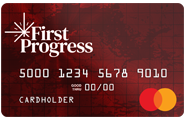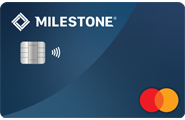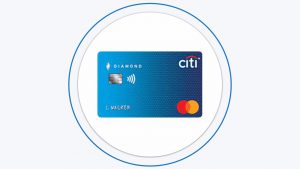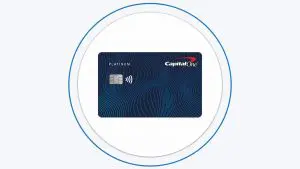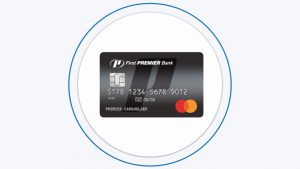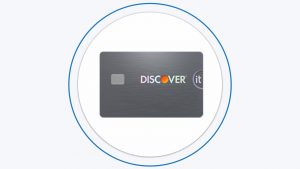Table of Content
If you have poor credit, getting a credit card can be challenging. Luckily, options like the Indigo Mastercard and OpenSky Visa card are here to help.
In this comparison, we’ll take a closer look at both cards to see which one offers more and which might be the better fit for you. Let’s dive in!
General Comparison
|
| |
|---|---|---|
Indigo Mastercard | OpenSky® Secured Visa® Credit Card | |
Annual Fee | $0 – $99 | $35 |
Rewards | None | None |
Welcome bonus | None | None |
0% Intro APR | None | None |
Foreign Transaction Fee | 1% | 3% |
Purchase APR | 24.90% | 24.64% Variable |
Read Review | Read Review |
Compare The Perks
Indigo Mastercard

- No Security Deposit Required: The main draw of this card is that, unlike the OpenSky, you don’t need a security deposit to open the card. You can access a revolving line of credit as you would with a standard credit card, but your initial credit limit will be low.
- Reports to all Credit Bureaus: This card can help you to build your credit score, as your account payments are reported to the major credit bureaus.
- You May Not Pay an Annual Fee: Indigo assesses each application and if your history qualifies you, you can enjoy the Indigo without needing to pay an annual fee.
- You Can Prequalify: Indigo is suitable for those with fair credit, but you can prequalify to check what terms you would be eligible for without impacting your credit score.
OpenSky® Secured Visa® Credit Card
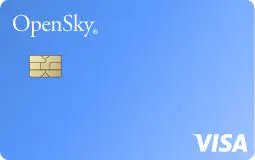
- Low Annual Fee: The annual fee for this card is only $35, which is very reasonable for a credit card designed for those with poor to average credit.
- No Credit Check Needed: Having poor credit can make it difficult to qualify for a credit card, but Open Sky does not require a credit check to apply. You will need to meet some requirements such as providing a Social Security number, having a monthly income greater than your typical monthly expenses, and being a U.S permanent resident or citizen. But, this should make it easy for most people to qualify.
- Activity Reported to All Three Credit Bureaus: As with the Indigo, your payment activity will be reported to the three major credit bureaus to help you to repair your bad credit over time.
- Bank Account Not Necessary: Many cards require that you have a bank account, which creates a barrier for those with poor credit. However, OpenSky does not require its cardholders to have a bank account as you can pay your security deposit with a Western Union payment or money order. You can also pay your credit card bills by money order.
Compare The Drawbacks
As with most financial products, there are both positives and potential negatives associated with these two cards. It is important to be aware of the potential drawbacks to determine which card is the best fit for your circumstances.
Indigo Mastercard

- High Annual Fee
When you submit an application, you could qualify for one of three Indigo card options. Depending on your credit, you could pay up to $99 as an annual fee, which is far higher than the OpenSky.
- Low Limit
While you don’t need to pay a security deposit, the Indigo only offers a low credit limit of just $300. This is far lower than other unsecured cards for those with low credit scores, which offer up to $1,000.
This means that if you want to improve your credit score, you will need to be very careful that you manage your credit utilization ratio. If your annual fee is $75, your credit utilization ratio will immediately be 25%.
OpenSky Secured Visa Card

- Limited Upgrade Path
OpenSky does not automatically offer an option to upgrade to an unsecured card once you’ve improved your credit score. While you may be eligible for a credit limit increase after six months with no additional security, OpenSky will still retain your original deposit, so it will remain tied into your account.
However, some customers may be offered an OpenSky Gold Unsecured card after approximately six months.
- High Deposit Options
The minimum deposit for the OpenSky is $200, which would provide you with a $200 credit line.
However, there are other cards that offer a similar credit line with a deposit as low as $49.
How to Maximize Cards Benefits?
Like any other card, there are some things that can help you to get more rewards with the same use, here are some:
- Pay off your annual fee immediately: Once you open up your card account, the annual fee will be applied. If you are charged the highest $75 annual fee, this is 25% of your available balance. If you want to use the card and have your payment activity reported to the credit bureaus, you will need to try to keep your credit utilization ratio below 30%. So, pay off your annual fee, before you start spending.
- Notify Indigo if you’re traveling: You can use your Indigo mastercard abroad and the foreign transaction fees are a reasonable 1%. However, there is a risk that your transactions will be declined outside of the U.S unless you notify Indigo before you travel.

- Set up autopay: While you have provided a security deposit for this card, it only acts as collateral for the card issuer should you default. You cannot use some or all of the deposit to pay the card bills. Since making payments on time is crucial to boost your credit score, set up autopay to ensure that your bills are paid on time each month.
- Don’t cash advance: Although it is possible to cash advance on this card, providing you have sufficient available credit, there is a hefty 5% fee, which makes it inadvisable.

Customer Reviews: Which Card Wins?
Indigo Mastercard
Many satisfied borrowers praise this card for its ease of use. While the lower credit limit might not be ideal for everyday spending, it functions just like a “normal” credit card and is straightforward to manage.
On the downside, some users have reported issues with customer service. Common complaints include difficulties communicating with support representatives and challenges resolving problems, especially when accounts are on hold, which can be particularly frustrating.
OpenSky Secured Visa Card
Satisfied borrowers report that this card is a good option to build your credit if you would struggle to get a sub prime non secured card. You can set your own credit limit and use the card regularly to see an increase in your FICO score.
Negative reviews suggest potential frustration with processing delays. There are complaints that funds can take up to 10 days to apply to your account and OpenSky only reports to the credit bureaus a month behind.
Bottom Line
Both of these cards are designed for those who have less than ideal credit. They offer a great way to access a credit card product even if you have a poor credit score.
However, since they operate in different ways, one may be a better fit for you.
Why You Might Want the Indigo Mastercard?
The Indigo Mastercard is a great option that could be good if:
- You don’t want to pay a security deposit: One of the main attractions of this card is that you don’t need to provide a security deposit. This can be a major plus point if you need a credit card, but don’t necessarily have spare funds that you can tie up as card security.
- You’re happy with a low limit: Many people simply want a credit card to access services that are unavailable if you don’t have one. For example, renting a car is far easier if you have a credit card. So, if you’re one of these people and don’t necessarily need a credit card for making every day purchases, this could be a good option for you.
- You want a card for purchases abroad: If you want to use your credit card to make purchases when you’re on vacation, the Indigo Platinum is appealing, since the foreign transaction fees are a very reasonable 1%. Just be sure to let Indigo know that you are headed out of the U.S to avoid transactions being declined.
When You Might Want the OpenSky Secured Card?
The OpenSky Secured Visa card can be a good fit for your needs if you're looking for:
- You don’t have a bank account: Many credit card providers, including those offering secured credit cards, require applicants to have a bank account, but this is not the case with OpenSky. You can use money orders to pay your security deposit and monthly bills.
- You don’t want a credit check: If you’re really struggling with your credit score and a hard credit pull will only make things worse, OpenSky is a great option. This card does not require a credit check to apply, so you won’t even temporarily impact your credit score.
- You want a larger credit limit: Your credit limit is determined by the amount you provide as a security deposit. So, if you’re looking to do some serious credit rebuilding and have plenty of cash, you can set yourself up with a $3,000 limit. This will allow you to make regular purchases with the card, while keeping below 30% credit utilization.
Compare The Alternatives
If you're looking to build credit, both options are quite good. However, there are some good alternatives you may want to consider – especially if you have bad credit:
|
|
| |
|---|---|---|---|
OpenSky® Secured Visa® Credit Card | First Progress Platinum | Milestone® Mastercard® | |
Annual Fee | $35 | $29
| $175 the first year; $49 thereafter |
Foreign Transaction Fee | 3%
| 3%
| 1% of each transaction in U.S. dollars
|
Purchase APR | 24.64% Variable | 25.24% Variable
| 35.90%
|
Top Offers From Our Partners

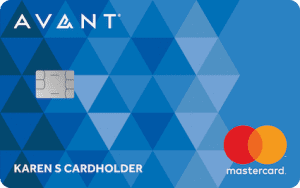

Advertiser Disclosure
The product offers that appear on this site are from companies from which this website receives compensation.

